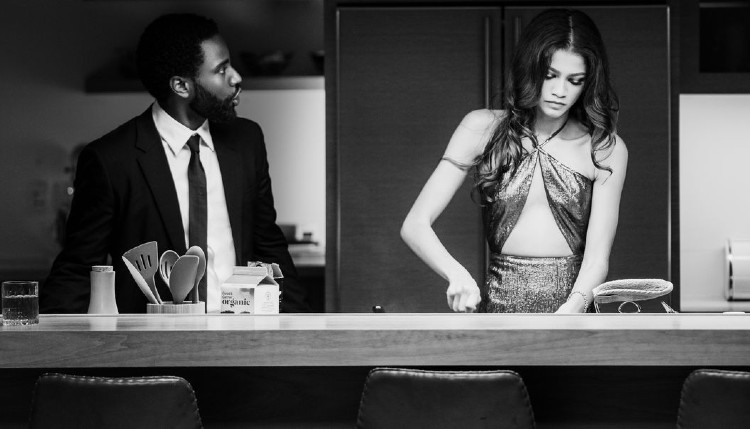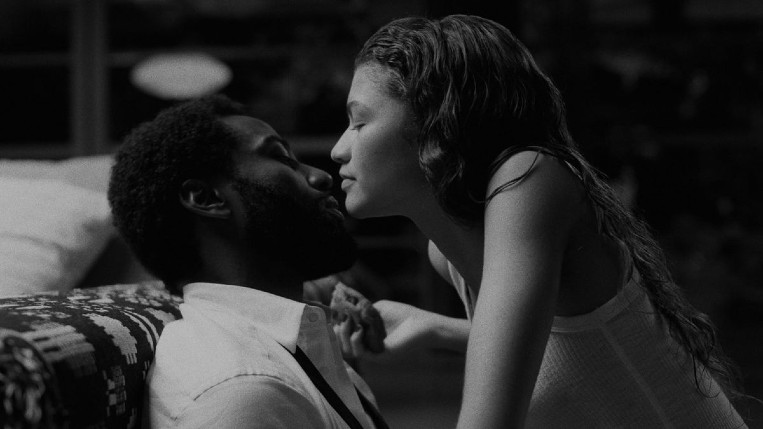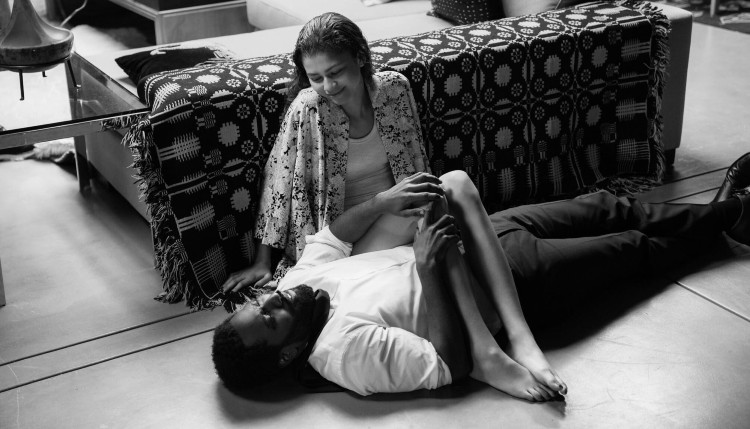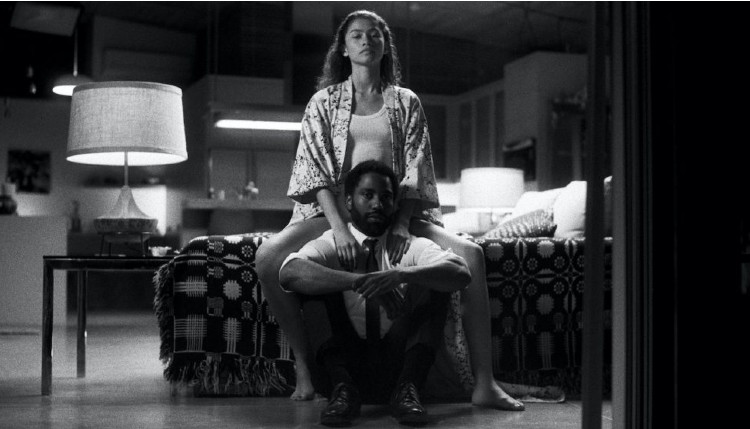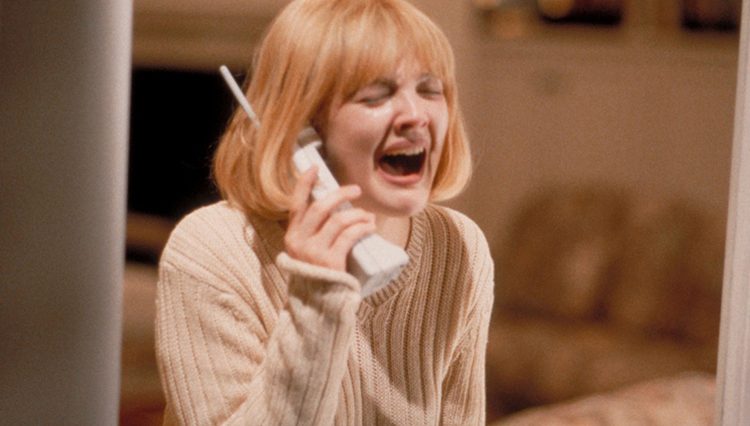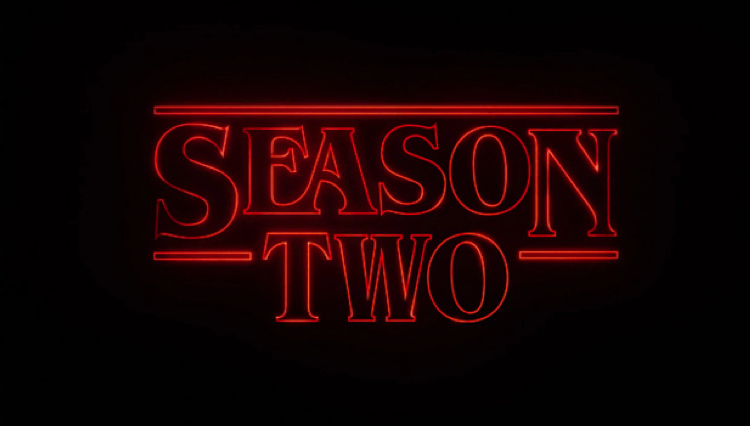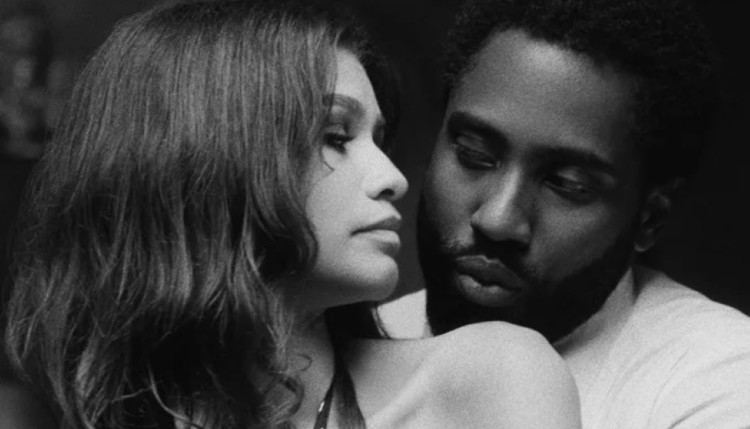
“It’s not just about you forgetting to thank me, Malcolm. It’s about how you see me. And how you view my contribution; not just to this relationship, but to your work. Specifically in a movie you made about my life.”
Malcolm & Marie, 2021 (Zendaya, John David Washington) Netflix
Visionary. I hate that word. It means nothing in 2021 with over a hundred years of recorded film history behind it. Assuming you have a generation of film enthusiasts unaware of this history, then everything you see past a certain point may strike you as “innovative” or “visionary.” I analyze the word because it pops up several times in publicity materials for writer/director Sam Levinson’s Netflix film, Malcolm & Marie, a one-hour-and-46-minute ramble made up of unbroken (admittedly richly drawn) black & white photography shot on film (a rarity these days) that betrays the documentary feel Levinson is obviously going for with fluid tracking shots and polished, expressionist lighting.
It’s not a “rough” movie, by any means, no matter who tells you. It’s not “visionary.” Malcolm & Marie is a movie that stands on the shoulders of Cassavetes and Scorsese, with a little bit of Jarmusch thrown in for good measure. Those three could more credibly be called visionaries than Levinson, who does what any decent filmmaker does: he steals from the best. If you haven’t seen anything of the work of those visionaries before, you might think Levinson came up with these moves on his own, but he didn’t. As Marie tells him halfway through the movie, “Just don’t believe the hype, Malcolm. And don’t push away the people who ground you.”
Malcolm & Marie exists as an exploration and celebration of vanity. John David Washington’s Malcolm is a filmmaker on the verge of success. His girlfriend, Marie (Zendaya), is a frustrated young (too young) woman still smarting from the scar of her boyfriend not casting her in his opus. Levinson is caught in a rather intriguing paradox. Movies about frustrated filmmakers interest me very little because I’ve lived that life, and because we never get to see Malcolm’s movie, we have no basis upon which to agree with Marie. This might sound stupid, but I kept asking myself, “What if she were a ghost, and he was talking to himself this whole time?”
While she strikes me as “high maintenance,” Malcolm doesn’t come off any more negotiable. He thinks he’s made the Great American Movie. They return home after a successful premiere, make macaroni and cheese (out of a box), alternately argue and make out, get ready for bed, argue, make out, bathe and urinate, and then argue and make out some more and this goes on for an hour and 46 minutes. The dialogue is a jumble of profanity and articulately-expressed thought, but written to be read not performed. In some stretches, the actors appear genuine in their rants. In others, Levinson is showing off.
Malcolm rails against a system that doesn’t embrace black filmmakers, while rebuking his people for being lazy consumers. He receives a positive review from a white critic for the L.A. Times and goes off on an obscenity-laden tirade about how the critic doesn’t truly understand the material. He strives to tell “important” stories, such as his dream project, an Angela Davis biopic, while coveting the easy success of a mainstream movie. For her part, Marie listens, but she does engage him on certain points, most notably the estimation of his experience as a black man in a white world.
She tells him (and us) that he is college-educated and grew up in an upper-middle-class household with both parents, indicting him for his presumed hypocrisy. What could he possibly understand about oppression? What could he possibly understand about his film’s lead character: a recovering drug addict who tries to turn her life around? Marie’s logic is flawed. Growing up in a comfortable family environment and graduating from college does not necessarily provide a cushion or shield you from tragedy, drug addiction, or oppression, but she is young.
Zendaya’s youth is a troubling factor in her performance. As talented as she is, her voice is that of a child. Her (or Levinson’s, really) skill at debate is undermined by her lack of experience. Levinson is a young man himself, and his logic is that of a young man. Marie’s wisdom is not her own because, while she might understand the words being put in her mouth, Zendaya doesn’t create a relatable character. She always has this look on her face like she’s trying to figure out what kind of pie she enjoys. I have no idea what her problems are, other than in the final stretch of the film when she tortures Malcolm for not thanking her. Yes. After the premiere of his movie, Malcolm thanked everybody under the sun, but he forgot to thank his girlfriend.
I can understand her antipathy, but her motivation is selfish, as is his. They are both selfish, vain figures (filmmaker and actress) and they exist in a world of narcissism, where self-esteem is completely dependent on other people’s ideas and perceptions; where sentiments can turn on a dime with the latest social media statistics. They’re both exceptionally beautiful people. Am I going too far with this? Was I not meant to read this much into the movie? If this is the case, Malcolm & Marie is a superb observation of millennial self-loving/self-loathing sociopaths who hunger for love and offer nothing but comforting torment. I just don’t know if it was worth this minimalist trip.


